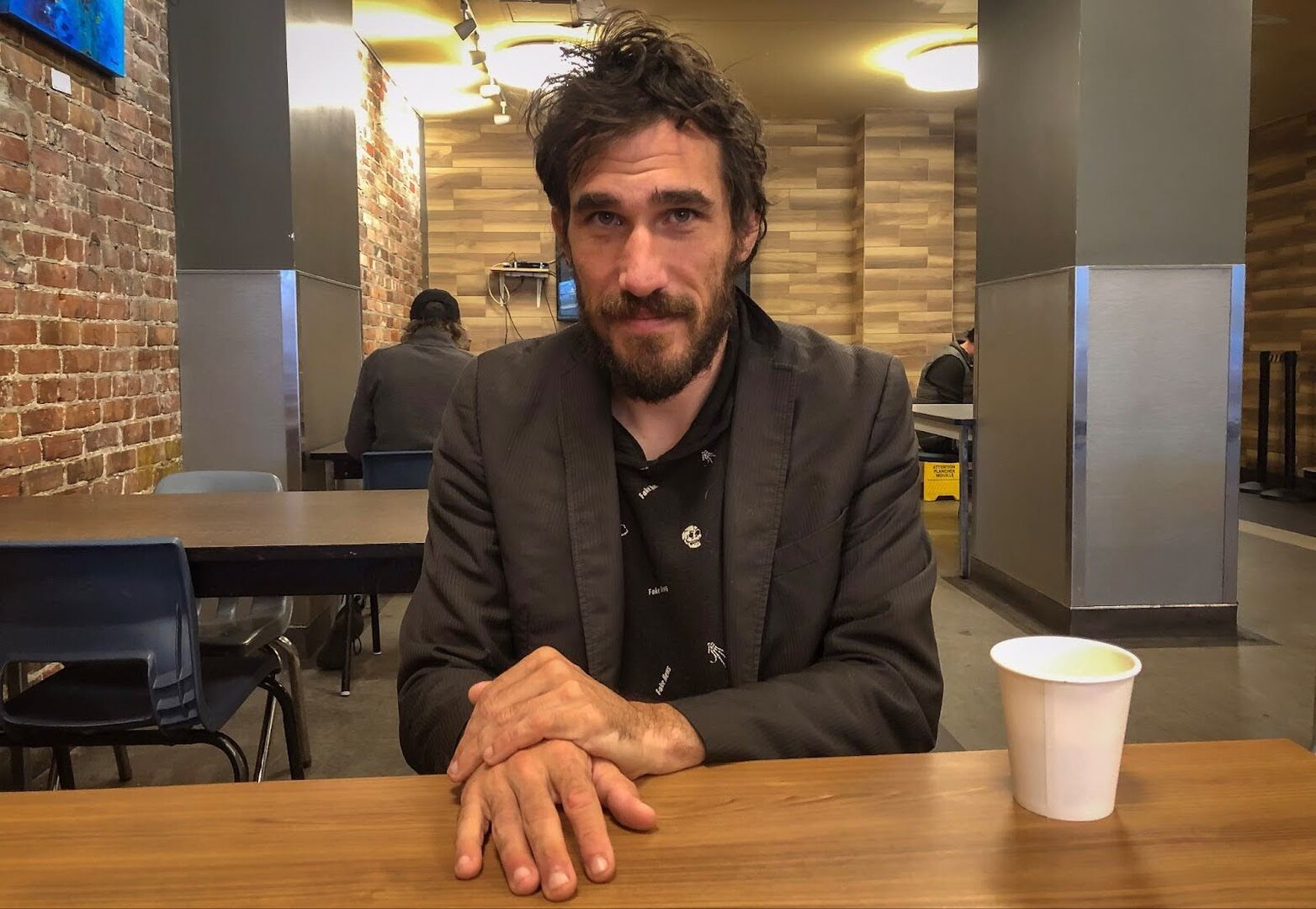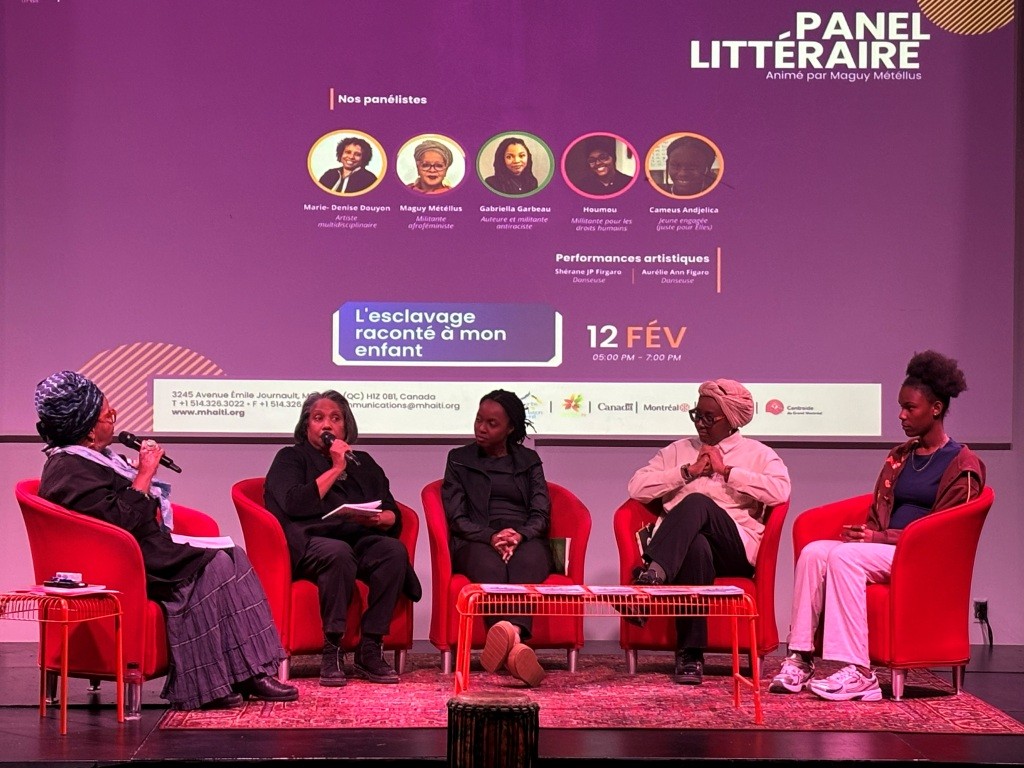The Legault government has announced the elimination of the Programme de l’expérience québécoise (PEQ), which had allowed immigrant graduates or workers in Quebec to obtain permanent residency more easily. After investing years into building a future in the province, thousands of people and their families now face precarious status, with some even risking being forced to return to their country of origin.
Amine’s wide smile is not joyful, but bitter. His dark circles reveal the sleepless nights spent suffocating under stress and anger, as “the Quebec government is destroying [his] family.”
Speaking over video call from his living room, the father takes a deep breath. When he opens his eyes again, he says he is ready to describe the “nightmare” he has been living since the announcement of the province’s new immigration restrictions—which include reducing immigration thresholds from 60,000 this year to 45,000 in 2026.
Amine arrived in Quebec two years ago with his wife and their three children. They left Morocco, where they were happy, he recalls with nostalgic warmth. “We had a stable life, a house, a car.”
“One day we heard about the Journées Québec,” he explains, referring to the Quebec government’s international recruitment missions. Immigration officials had even travelled to Morocco to attract workers to the province. Amine saw it as an opportunity for his children to have a “better life” and “world-recognized education.”
The parents hesitated but were reassured by the guarantees they received. “From day one, they promised us that the PEQ would allow us to stay in Quebec permanently,” Amine says, his voice trembling.
The family accepted “the challenge” and left for Quebec in August 2023 after being selected. “I sold everything. I quit my job, closed my accounts… Everything I had, I put into 25-kilo suitcases to come to Canada,” he says, a mix of hope and regret in his voice.
The End of a Major Program
.jpg)
The program Amine and his family were counting on to settle in Quebec is the Programme de l’expérience québécoise (PEQ). It served as a fast track to obtaining a Quebec Selection Certificate (CSQ) and, eventually, permanent residency. Immigrants needed a Quebec diploma and one year of work experience—or two years of experience without a diploma—along with proficiency in French.
Last week, the provincial government announced the end of this program, plunging newcomers into uncertainty as nothing now guarantees they will be able to stay after their work permits expire in the coming months.
Their only remaining option is the Programme de sélection des travailleurs qualifiés (PSTQ), a more uncertain path that gives the government greater control over who becomes a permanent resident.
The PSTQ uses a points-based system, evaluating education, work experience, industry, geographic location, and French proficiency. Unlike the PEQ, meeting the criteria does not guarantee selection.
Residents of Montreal will be particularly disadvantaged, as the new plan prioritizes reducing immigration in the metropolis to encourage regional settlement. Applying under the PSTQ while living in Montreal could therefore sharply decrease applicants’ chances.
For Yamanda Bouchaala, part of the organizing team behind a protest against the PEQ’s elimination, the PSTQ “is basically a lottery.” “The chances of getting permanent residency are now very low, even impossible for some,” she explains. “If you’re not selected, you pack your bags and leave.”
Another option is to move to another Canadian province and apply through Express Entry—while their work permits remain valid. Although francophones receive some advantages under that system, success is not guaranteed.
Sacrifices Made to Live in Quebec
With her hair tied back and a worried expression, Lina, 35, paces through her apartment during our call. Like Amine, she and her husband left everything behind after Quebec immigration officials recruited them in Tunisia. He was a restaurant owner; she was a senior manager at a Tunisian-German firm.
Like Amine, she received promises. “They told us about the PEQ and permanent residency. They told us about Quebec and the good life,” she says with an ironic laugh.
Zied*, who arrived at 19 to study and settle permanently, sits at his desk, phone propped up. “I’ve lived seven years here—seven years of dreams and plans,” says the Polytechnique graduate, now an IT engineer at a bank.
“These people invested everything in Quebec thinking they could stay,” says Bouchaala. “Their time, their money—everything.”
Staring into space, Zied tallies his education costs. “Fourteen thousand per semester… around $125,000 total,” he says in disbelief.
Amine invested all his savings into relocating his family to Montreal and now spends his entire minimum-wage salary on rent. “I accepted starting from the bottom,” he says, despite having been a department manager for a telecom company in Morocco.
Lina struggled to find work. Without recognition of her credentials, she had to take a job far below her qualifications. A law graduate, she was eventually hired as a school educator in Quebec City. “I don’t want to use this word, but it felt like a ‘fall,’ a downgrade,” she confides.
For both Zied and Lina, the biggest sacrifice remains leaving their families behind. Lina recalls the moments she missed, including her father’s heart surgery. Her eyes fill with tears.
Her arrival in Quebec had been “very, very difficult,” but she says that for the first time, just a month ago, she was beginning to feel happy: “Even when my family called, I sounded more enthusiastic.”
“I have my friends, my memories, my habits here,” says Zied. “I’ve lived seven years here; Quebecers tell me I’m one of them… and my employer says he needs me.”
A Brutal Decision
The Quebec dream abruptly ended last week when the government eliminated the program that allowed immigrants to obtain permanent residency after a few years of studies or work. “Everything changed. Life became dark,” Amine says. “We have two options: leave or leave.”
Applying for permanent residency now requires moving to another city or province through a different program—with no guarantee of approval. “Leaving Montreal or leaving the country is the same,” says Zied. “I’ll have to start from zero either way.”
Lina is terrified of returning to Tunisia: “What can we do there? No house, no car, no savings. We left everything.”
Amine’s children, who no longer speak Arabic, refuse to leave. “Going back would destroy them,” he says.
Bouchaala denounces the government’s abrupt decision. “We followed the rules, we had rights—and then suddenly, nothing.”
Anger and Anxiety
After the initial shock comes fear. Lina’s work permit expires in two months; Amine’s in six; Zied’s in a year. None knows what to do.
“I don’t sleep anymore; I can’t live normally,” says Amine, constantly worried about his children. “Quebec fooled me! What they did to all these people is terrible!”
“It’s unacceptable!” repeats Zied. “They give us hope, and then say: ‘We don’t want you anymore.’”
“The government deceived us,” Lina says. “They broke our lives.” She adds she wishes they had “left her alone” in Tunisia. “We’re not objects—we’re human beings!”
Mobilizing
.jpg)
On Monday morning, protesters gathered in front of Quebec’s Ministry of Immigration to oppose the PEQ’s elimination. The demonstration, supported by the advocacy organization Le Québec c’est nous aussi, drew hundreds of people—many sharing stories similar to Amine’s, Lina’s, and Zied’s.
Organizers are calling for a grandfather clause allowing eligible immigrants to obtain permanent residency before the PEQ fully disappears. “We want the people already here, already part of Quebec, to stay,” Bouchaala explains. A transitional abolition, she says, would prevent devastating consequences.
Amid distress, the crowd lights up at the mention of a possible transition. Bouchaala clings to that hope: “Of course we believe in it. We’re going to make our voices heard. We belong in Quebec.”
*Names have been changed to protect anonymity.
The Ministry of Immigration had not responded to our interview request at the time of publication.




.jpg)
%20(1)%20(1).jpg)



.jpg)